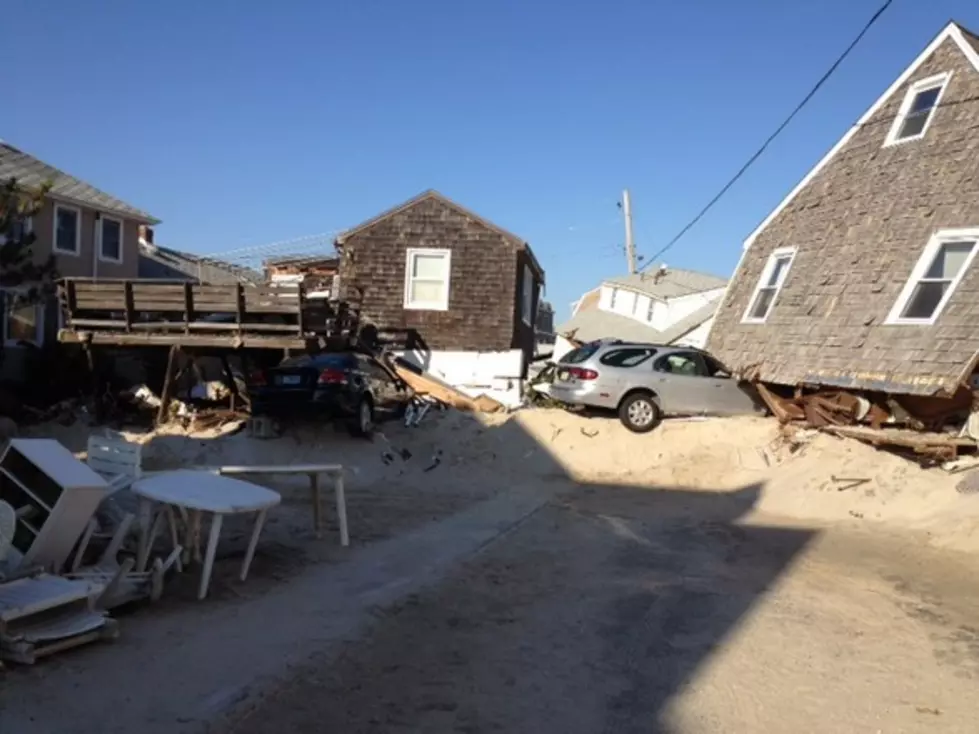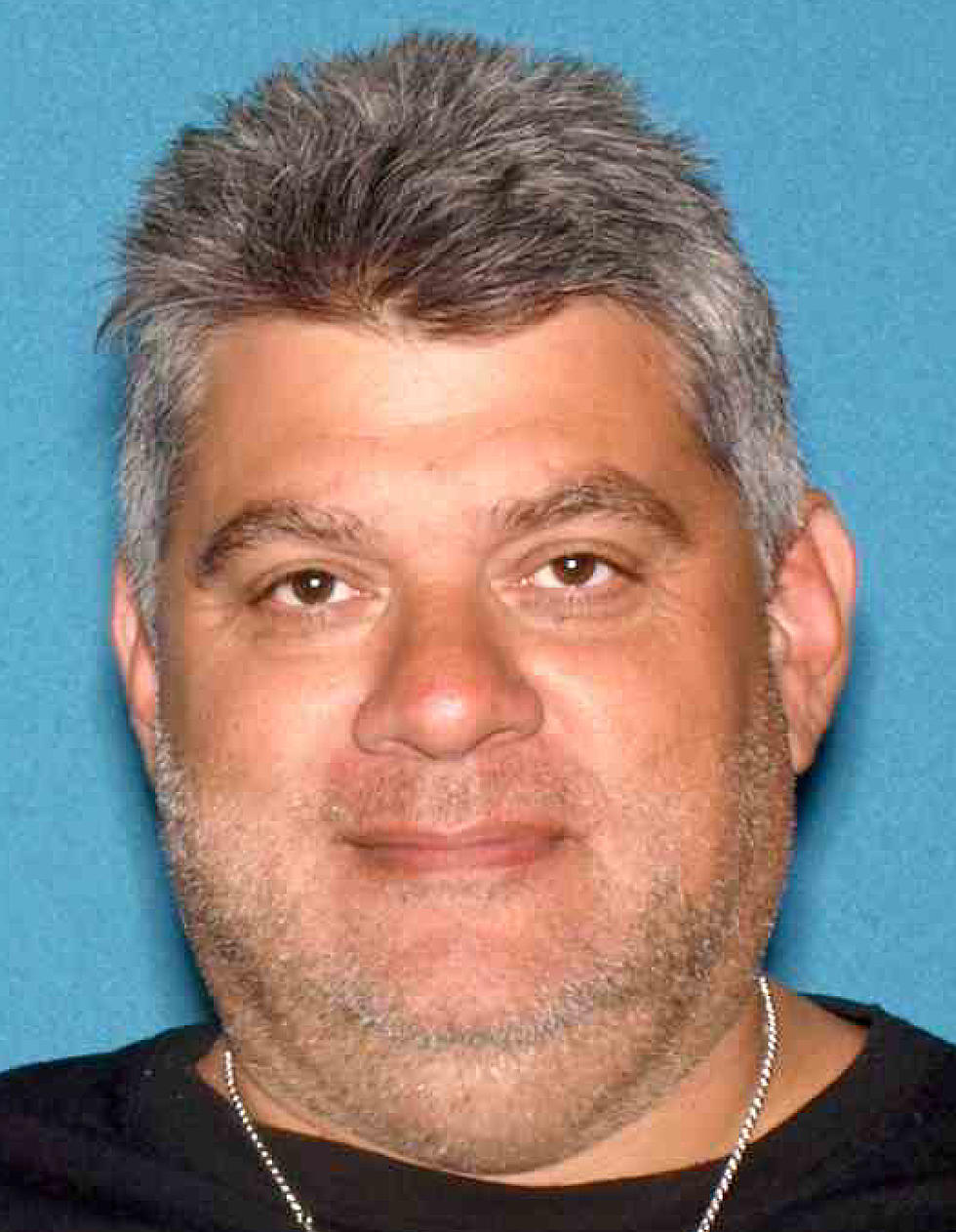![NJ Senate Holds First Hearing Into Sandy Response [POLL/AUDIO]](http://townsquare.media/site/394/files/2012/11/sweeney.jpg?w=980&q=75)
NJ Senate Holds First Hearing Into Sandy Response [POLL/AUDIO]
The state Senate Budget Committee kicked off its first hearing into the state's response to Superstorm Sandy, and a major focus will be how to help towns financially recover as they struggle with rebuilding costs and lost tax revenue.
Local mayors, police chiefs, and emergency management officials testified for nearly four hours as members of the Senate panel held the first in a series of hearings in Toms River, one of the Ocean County towns hit hardest by the storm.
"I have never seen anything like this in my lifetime, we were devastated by flood waters, damage to the mainland, the barrier island," said Toms River Police Chief Mike Mastronardy.
He admitted he was not skeptical about how powerful the storm would be when it hit the state.
"We had people climbing into boats that were floating by because their cars were flooding with water, nearly 400 water rescues during the height of the storm, just horror stories, one after the other."
Toms River Business Administrator Paul Shives said 9,000 properties were impacted by the storm and roughly 5,000 of the township's 100,000 residents are still in temporary housing or staying with relatives.
"We will need state help to bridge the gap financially for the next three to five years as we look to rebuild...and we're not talking about thrills here, we're talking about basic necessities for our residents for the next few years, trash collection and recycling," he said.
Shives also suggested that the state change its distribution of state aid over the next few years to help battered communities pay their bills.
"I know there is all this criteria that goes into determining state aid, but respectfully, I would suggest that the time to change that is now...towns across Ocean and Monmouth counties and other parts of the state were absolutely devastated."
He said the state should also have hearings with the state BPU about local utilities response after the storm.
"We had no idea about timing as far as power was concerned, when the lights we're going to get back on and that really hurt us."
A sentiment echoed by Brick Mayor Steve Acropolis.
"We have to find a better way for utilities to deliver services...when they are calling me and asking if certain sections in town are back online, its just ridiculous."
Acropolis said 109 homes burnt to the ground or were destroyed, 6,000 were damaged, affecting $400 million in rateables and costing $50 million in cleanup costs.
"We have debris still floating in lagoons in our town, that's affecting people's homes," he said.
He suggested that the state streamline the permitting process and look into the impact of cell service when power is lost.
"We are also seeking advanced money from FEMA, that would make it a lot easier for us at the local level and will reduce costs to the taxpayers in the long-term because of bonding costs," Acropolis said.
Belmar Mayor Mike Doherty said despite major damage in town, they are working quickly to get things up and running again for residents.
"By the end of this week we hope to have all the debris removed, which is a big step," he said.
Senate Budget Chair Paul Sarlo commended Doherty for the borough's work after the storm, which included $20 million in emergency appropriations.
Doherty said the town incurred a $130 million price tag from the storm and will need state assistance.
"We need assurances that there will be no strings attached to financial aid by those with political agendas."
There was some good news in the mayor's testimony. A new 1.3 mile, $26 million boardwalk has already been designed.
"We will be going out to bid for this boardwalk this week, with the plan to begin construction at the end of this year to have it complete by Memorial Day weekend next year," said Doherty. "The structure will be built to stand up to future storms and be accompanied with a new steel seawall."
Reconnecting gas and electricity and getting people back into their homes, fighting mold and struggling to pay cleanup and other costs associated with the storm were just some of the issues local officials described to the panel.
"We have to think about infrastructure, why it was done, how it was done, how we can do it more efficiently...the rebuilding of the beach, the shoreline, the boardwalk, the contractors and how they will help families rebuild," said Senator Kevin O'Toole.
"This is going to take some time, and its going to take real dollars, both federal and state dollars to get us back to where we were," said Senator Sarlo.
Improving Emergency Response
State officials also called the hearing to be better prepared and improve emergency response for future storms.
"We could improve communication, that's a big thing, people are frustrated when they don't know," said Toms River Police Chief Mike Mastronardy.
He also said the township struggled with a lack of marine equipment during the height of the storm.
"We didn't anticipated having so many water rescues, people were using kayaks, canoes, jetskis, we really just didn't have enough equipment."
State Police Colonel Rick Fuentes said that could be an issue they try to change for the next storm.
"So next time maybe we stage the equipment closer to where the impact of the storm is."
Fuentes also testified at the hearing that the public heeded Governor Christie's call to evacuate, mandatory or not and loss of life was minimal.
"For how powerful this storm was, we were very fortunate."
He said the state had outside help from over 200 National Guard citizen soldiers and 75 ambulances, in addition to the multiple state police troopers from neighboring states.
"In the case where we used out of state troopers, that's probably the toughest part...knowing when to respond. We had so many of our own resources here in New Jersey completely tapped out and by the time those out of state crews got here, it was the following week after the storm made landfall and the troopers that were helping we're pretty much exhausted."
Fuentes said moving forward the state could coordinate with out of state troopers sooner.
"When they got here it was tremendous and everyone was able to get a much-needed break, but its something we need to think about."
He said State Police will also be completing an after-action report in the coming weeks.
"Looking at ways we can improve, things we can do better...we had a lot of manpower covering dark street corners and manning traffic, offering security for residents homes to prevent looting, and then we had to assist with gas rationing, so there is a lot for us to review."
More From 92.7 WOBM










